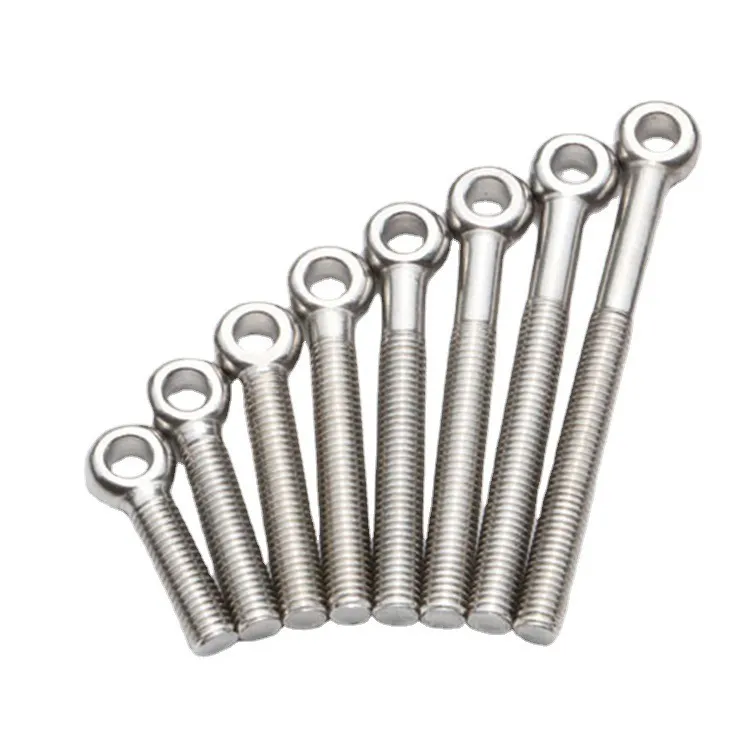

Understanding Carriage Bolts and Nuts for Your Hardware Projects
Nov . 07, 2024 22:14 Back to list
Understanding Carriage Bolts and Nuts for Your Hardware Projects
Understanding Carriage Bolts and Nuts
Carriage bolts and nuts are essential components in various construction and mechanical applications. These fasteners have distinct characteristics and uses, making them a favorite among builders, engineers, and DIY enthusiasts alike. In this article, we will explore the features, applications, and benefits of carriage bolts and nuts, emphasizing their significance in the world of fastening.
What Are Carriage Bolts?
Carriage bolts, also known as round head square neck bolts, are unique fasteners designed primarily for wood but found in metal applications as well. They have a smooth, rounded head and a square neck that helps prevent them from turning when being tightened. This design allows for a more secure fastening, especially when used with a nut, as the square section is held in place by the wood or material.
Typically, carriage bolts come in various sizes and materials, such as stainless steel, zinc-plated steel, and other alloys, allowing them to withstand a range of environmental conditions. Their typical length varies from 1 inch to over 12 inches, depending on the application. The head is usually larger than standard bolt heads, providing a wider bearing surface, which is particularly useful in applications where load distribution is crucial.
The Role of Nuts in Fastening
Accompanying carriage bolts, nuts are used to secure and hold the bolt in place. The most common type of nut used with carriage bolts is the hex nut, characterized by its six-sided shape. The nut is threaded to fit snugly onto the threaded section of the bolt, creating a strong connection. Nuts can also come in different materials, such as nylon, brass, and steel, each chosen based on the application requirements.
When paired with carriage bolts, nuts enable the creation of a strong joint that can withstand tensile and shear forces. The combination of the smooth head of the carriage bolt and the compatibility with a variety of nuts makes this fastening system exceptionally versatile.
Applications of Carriage Bolts and Nuts
Carriage bolts and nuts are used in a wide range of applications, particularly in the construction industry. Some common uses include
1. Wooden Structures Carriage bolts are commonly employed in the construction of wooden decks, fences, and furniture. Their design allows for easy installation and the ability to secure large sections of wood together.
carriage bolts and nuts

2. Metal Fabrication While initially designed for wood, carriage bolts are also used in metal-to-metal applications, often seen in railings and frames, where their strength and durability are advantageous.
4. Home Improvement Projects DIY enthusiasts often utilize carriage bolts for various home improvement tasks, such as building workbenches, tables, or outdoor structures.
Advantages of Using Carriage Bolts and Nuts
The use of carriage bolts and nuts offers several benefits
- Ease of Use The installation of carriage bolts is straightforward, requiring just a hole to be drilled for the bolt and a nut for secure fastening.
- Strength and Durability Carriage bolts provide a strong hold, capable of withstanding heavy loads, making them ideal for various structural applications.
- Corrosion Resistant Options With materials such as stainless steel and zinc plating available, carriage bolts can resist rust and corrosion, ensuring longevity in outdoor or humid environments.
- Aesthetically Pleasing The rounded head of the carriage bolt provides a clean and finished look, which is particularly beneficial in visible applications.
Conclusion
In summary, carriage bolts and nuts play a crucial role in various construction and mechanical applications. Their unique design, ease of use, and strength make them a preferred choice among professionals and DIY enthusiasts. Whether constructing a new deck, assembling furniture, or working on complex machinery, understanding the characteristics and applications of carriage bolts and nuts is essential for achieving secure and durable connections. As industries continue to evolve, the importance of selecting the right fasteners remains paramount, ensuring safety and reliability in all projects.
Latest news
-
High-Strength Hot Dip Galvanized Bolts - Hebei Longze | Corrosion Resistance, Customization
NewsJul.30,2025
-
Hot Dip Galvanized Bolts-Hebei Longze|Corrosion Resistance&High Strength
NewsJul.30,2025
-
High-Strength Hot-Dip Galvanized Bolts-Hebei Longze|Corrosion Resistance&High Strength
NewsJul.30,2025
-
Hot Dip Galvanized Bolts-Hebei Longze|Corrosion Resistance&High Strength
NewsJul.30,2025
-
Hot Dip Galvanized Bolts - Hebei Longze | Corrosion Resistance, High Strength
NewsJul.30,2025
-
High-Strength Hot Dip Galvanized Bolts-Hebei Longze|Corrosion Resistance, Grade 8.8
NewsJul.30,2025

